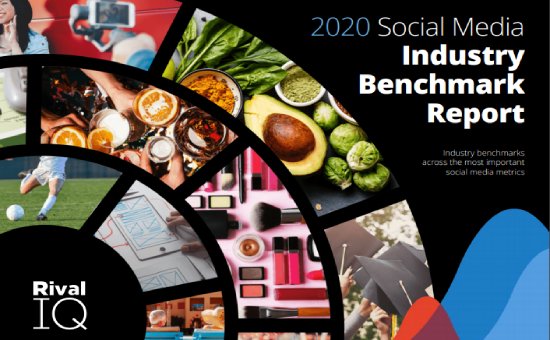The Game-Changing Power of AI: Win the Future of Search | WPROMOTE
Artificial Intelligence
In the ever-evolving digital landscape, Artificial Intelligence (AI) stands out as a beacon of innovation, and its integration into search engines is redefining how users interact with online information. With an in-depth analysis, let’s explore the profound impact and implications of the Power of AI on search functionalities.
Tomorrow: Predicting the AI-Powered Future of Search
AI and search have a symbiotic relationship that’s reshaping the digital landscape. The prominence of this relationship is accentuated by the intense competition between tech giants like Microsoft and Google. Search engines have been evolving towards AI for some time, with voice search being a notable milestone.
However, voice search’s limitations arise from human preferences; we are predominantly visual beings. Conversational search, where users interact more naturally with search engines, is gaining momentum. Google’s changes, including zero-click features on search engine result pages (SERPs), have paved the way for this shift.
The next phase of search, powered by generative AI, promises enhanced user experiences. Users can expect richer information and personalized recommendations directly from the SERP. This convenience might change how consumers research products, with social networks playing a pivotal role, especially for younger demographics.
For businesses, adapting to this AI-driven search landscape is crucial. An integrated marketing strategy that leverages both search and social media is essential. SEO and content marketing should prioritize brand visibility on AI-driven SERPs.
A key focus should be on E-E-A-T: Experience, Expertise, Authoritativeness, and Trustworthiness. Brands must ensure that both their owned content and mentions in authoritative sources align with these criteria to optimize their AI search presence.

Tactics: Incorporating AI into Search Strategy Right Now
Generative AI is revolutionizing the way businesses approach the customer lifecycle, from awareness to retention. A study by Botco.ai reveals that 73% of marketers utilize generative AI for content creation, focusing mainly on platforms like email and social media due to their concise nature. However, when integrated carefully, AI tools like Bard and ChatGPT can enhance website content and SEO strategies.

Key strategies for marketers include:
- Diversified Queries: Engage AI with detailed queries to refine content ideas.
- Holistic Content Approach: Implement AI-generated content across various channels and assess its performance through metrics like session duration.
- Addressing User Queries: Produce content that answers user questions comprehensively while optimizing for specific commercial goals. Also, monitor evolving search behaviors on AI platforms like SGE and New Bing.
- Validation: While AI is powerful, always cross-check its outputs. Yet, leverages its strength as an aggregator of vast information by assigning it roles like customer personas for insights.
Google offers content guidelines emphasizing user-centricity:
- Content should cater to the intended audience’s needs.
- It should showcase expertise and depth.
- Ensure content clarity and satisfaction post-consumption.
Salesforce data indicates that marketers are exploring AI for various purposes, including product recommendations and conversational shopping assistants.
For a comprehensive AI search strategy:
- Stay informed about platforms like SGE.
- Prioritize brand awareness across organic and paid channels.
- Develop content for multiple channels, emphasizing accessibility to AI.
- Monitor new SERP metrics and prioritize authoritative backlinks and endorsements.
- Adapt strategies based on search platform strengths.
In essence, as search evolves with AI, marketers have a unique opportunity to lead, delivering superior experiences while staying ahead of competitors.
Navigating the AI-Powered Search Future
Integrating AI into search engines heralds a new era of digital interaction, marked by enhanced user experiences and brand opportunities. As AI-driven search technologies continue to evolve, brands must remain agile, continuously adapting and refining strategies to navigate this dynamic landscape effectively.
Embracing the AI-powered search future requires a holistic approach, encompassing content optimization, strategic diversification, and metric reevaluation. By embracing change, fostering innovation, and prioritizing user-centricity, brands can harness the transformative power of AI, driving success in the evolving digital search ecosystem.
The journey ahead promises challenges, but with challenges come opportunities, and for forward-thinking brands, the AI-powered search future is ripe with possibilities waiting to be explored.
Dive deep into our comprehensive guide on leveraging AI for search success. Learn how to optimize your content, diversify your strategy, and redefine metrics for the AI era.
The Table of Contents of “The Game-Changing Power of AI: Win the Future of Search” Guide:
- Tomorrow: Predicting the AI-Powered Future of Search
- A natural fit: the unique resonance between AI and search
- The new search experience: what’s changing
- Testing: Taking Action for Tomorrow’s Search Today
- Structured data: packaging information for large language models
- Beyond the website: diversifying your search strategy
- The evolution of measurement: identifying new KPIs
- Tactics: Incorporating AI into Search Strategy Right Now
- Real-time customer insights: elevating site content with gen AI
- Your AI search strategy checklist: balancing today and tomorrow
Number of Pages:
- 21 pages
Pricing:
- Free
Warning: Undefined array key "sidebar_ads" in /home/dmc/public_html/wp-content/themes/DMC/functions/helpers.php on line 824






